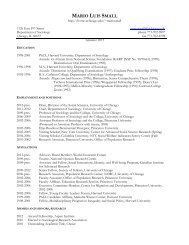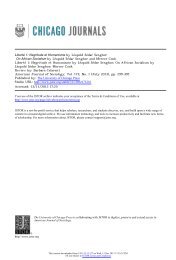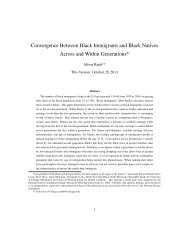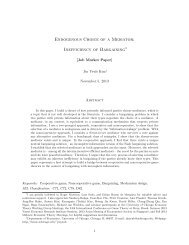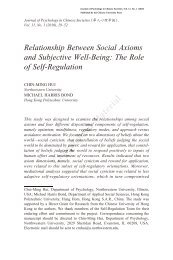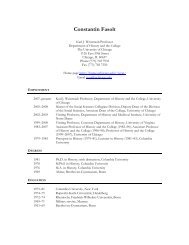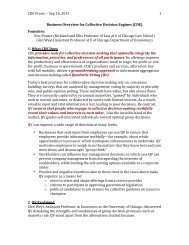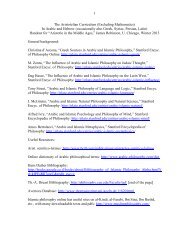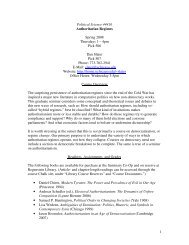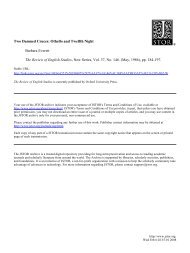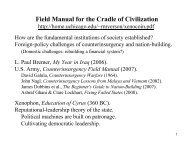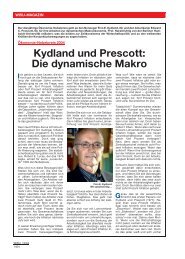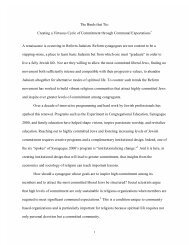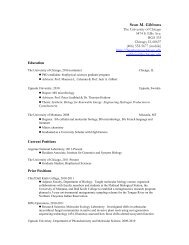Guide to the Study of Early Modern European History For Students ...
Guide to the Study of Early Modern European History For Students ...
Guide to the Study of Early Modern European History For Students ...
You also want an ePaper? Increase the reach of your titles
YUMPU automatically turns print PDFs into web optimized ePapers that Google loves.
(1977): 306-337. Read a his<strong>to</strong>riographical article, like Eric Cochrane's article in <strong>the</strong> Journal <strong>of</strong><br />
<strong>Modern</strong> His<strong>to</strong>ry, 33 (1961): 113-36, which reports on studies <strong>of</strong> Machiavelli published from<br />
1940-1960. Read <strong>the</strong> AHR <strong>For</strong>um on Hans Baron's ideas about Renaissance Humanism<br />
published by Ronald Witt, John M. Najemy, Craig Kallendorf and Werner Gundersheimer in<br />
<strong>the</strong> American His<strong>to</strong>rical Review 101 (1996): 107-44, which reassesses <strong>the</strong> work <strong>of</strong> one <strong>of</strong> <strong>the</strong><br />
most important twentieth-century his<strong>to</strong>rians <strong>of</strong> <strong>the</strong> Italian Renaissance. If you read <strong>the</strong>se<br />
works side-by-side with Machiavelli's Prince and Pocock's book about Machiavelli, you will<br />
acquire three interlocking sets <strong>of</strong> information: one from Machiavelli himself; one from<br />
Berlin, Rubinstein, and Pocock about Machiavelli; and one from Tarcov, Hexter, Cochrane,<br />
and <strong>the</strong> AHR forum about <strong>the</strong> ways his<strong>to</strong>rians like Berlin, Pocock, and Baron have dealt<br />
with Machiavelli. That will streng<strong>the</strong>n your grasp <strong>of</strong> <strong>the</strong> subject more rapidly than would<br />
reading more by Machiavelli, about Machiavelli, or about <strong>the</strong> his<strong>to</strong>riography about<br />
Machiavelli in isolation.<br />
I would especially like <strong>to</strong> stress <strong>the</strong> importance <strong>of</strong> reading <strong>the</strong> third type <strong>of</strong> his<strong>to</strong>rical<br />
writing: books and articles about <strong>the</strong> secondary literature—what one might call <strong>the</strong> tertiary<br />
literature. Beginning students <strong>of</strong> his<strong>to</strong>ry are <strong>of</strong>ten very well aware how important it is <strong>to</strong><br />
master <strong>the</strong> primary sources and <strong>the</strong> secondary literature. They are not always equally well<br />
aware how important it is <strong>to</strong> read <strong>the</strong> tertiary literature.<br />
The tertiary literature comes in a variety <strong>of</strong> forms. At one extreme it consists <strong>of</strong><br />
reviews devoted <strong>to</strong> a recently published book. At <strong>the</strong> o<strong>the</strong>r extreme, it consists <strong>of</strong> magisterial<br />
studies unravelling <strong>the</strong> his<strong>to</strong>riography <strong>of</strong> a whole period <strong>of</strong> his<strong>to</strong>ry or more. In between <strong>the</strong>re<br />
are review articles devoted <strong>to</strong> groups <strong>of</strong> books, his<strong>to</strong>riographical essays surveying<br />
developments in given fields <strong>of</strong> study, forums like those <strong>the</strong> American His<strong>to</strong>rical Review<br />
regularly devotes <strong>to</strong> subjects <strong>of</strong> current interest, and a variety <strong>of</strong> o<strong>the</strong>r genres <strong>of</strong> engagement<br />
with <strong>the</strong> secondary literature. Hayden White's Metahis<strong>to</strong>ry is a great example <strong>of</strong> a magisterial<br />
study. It unravels <strong>the</strong> whole <strong>of</strong> nineteenth-century his<strong>to</strong>rical writing. Book reviews like those<br />
by Tarcov and Hexter <strong>of</strong> Pocock's Machiavellian Moment can be found in most his<strong>to</strong>rical<br />
journals. Each issue <strong>of</strong> a given journal usually contains a whole section <strong>of</strong> reviews devoted <strong>to</strong><br />
recently published books that can easily run in<strong>to</strong> <strong>the</strong> hundreds. His<strong>to</strong>riographical essays like<br />
Cochrane's on studies <strong>of</strong> Machiavelli from 1940-1960 and forums like that in <strong>the</strong> American<br />
His<strong>to</strong>rical Review <strong>of</strong> 1996 on <strong>the</strong> work <strong>of</strong> Hans Baron are published less frequently and in<br />
smaller numbers than book reviews, but still on a regular basis.<br />
The great advantage <strong>of</strong> reading book reviews is that <strong>the</strong>y appear soon after a book<br />
has been published, that <strong>the</strong>y are brief, and that <strong>the</strong>y give you an instant snapshot <strong>of</strong> one<br />
scholar's judgment <strong>of</strong> a recent book. If it's a good review, it will tell you what is important<br />
about <strong>the</strong> book, how it relates <strong>to</strong> o<strong>the</strong>r books published previously by <strong>the</strong> same or o<strong>the</strong>r<br />
authors, how it fits in<strong>to</strong> <strong>the</strong> field, what is good about it, and what is not.<br />
It's hard <strong>to</strong> overestimate how useful it is <strong>to</strong> have such information, both for books<br />
being published now and for books that were published long ago. Most books get reviewed<br />
in more than one journal, so that you can compare <strong>the</strong> views <strong>of</strong> different reviewers with each<br />
o<strong>the</strong>r. Each reviewer's judgment will differ somewhat from that <strong>of</strong> <strong>the</strong> o<strong>the</strong>rs and from<br />
yours. Each reviewer will tell you something slightly different about <strong>the</strong> relation between <strong>the</strong><br />
book in question and <strong>the</strong> existing scholarship. With each review you read you will <strong>the</strong>refore<br />
learn something new about <strong>the</strong> state <strong>of</strong> <strong>the</strong> field and develop a better understanding <strong>of</strong> what<br />
you can expect from <strong>the</strong> book in question. Reading book reviews is obviously not a<br />
substitute for reading <strong>the</strong> book. But nei<strong>the</strong>r does reading <strong>the</strong> book allow you <strong>to</strong> ignore <strong>the</strong><br />
reviews. Reading <strong>the</strong> reviews <strong>of</strong> a book <strong>of</strong>fers invaluable clues <strong>to</strong> reading <strong>the</strong> book with an<br />
understanding, not only <strong>of</strong> what's on <strong>the</strong> page and what <strong>the</strong> author says, but also <strong>of</strong> what it<br />
10<br />
10



